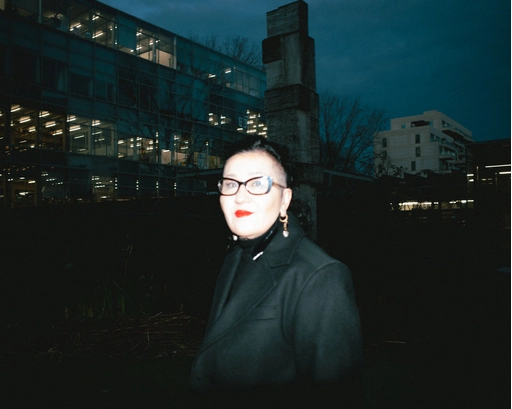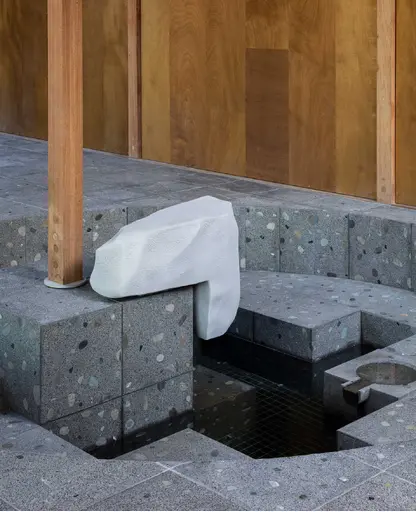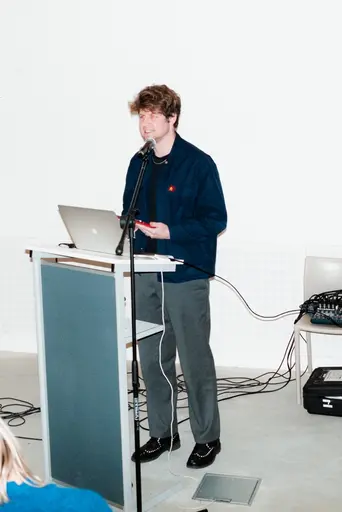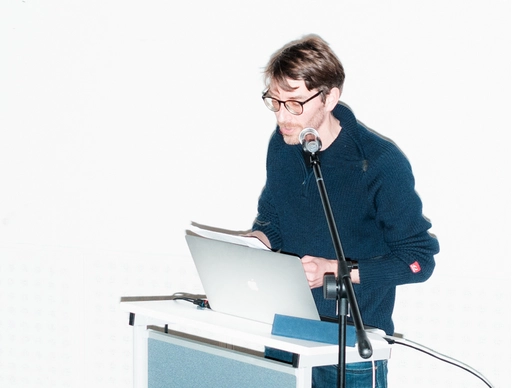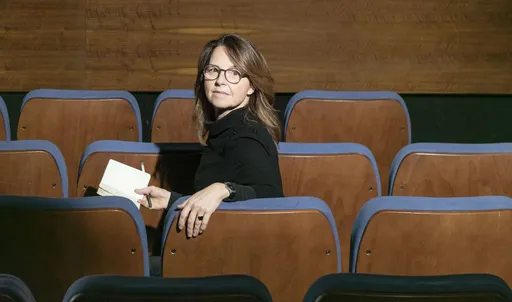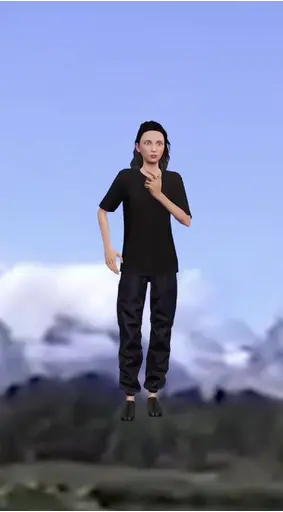Algorithmic Cultures – Slow AI Join us on 15 May at Framer Framed for Slow AI: Practices of Thinking, Sensing, and Refusing—a day-long symposium reimagining artificial intelligence through artistic practice and the lenses of ethics, relationality, and refusal. The event is free but we need to keep an eye on attendance since we have a limited capacity, so please register here .
Algorithmic Cultures – The “Algorithmic Cultures” research group presents: Speculative Gaze: Reading the Algorithmic Image. In this seminar we will engage with the AI-generated image as a site for layered interpretation, inquiry, and cross-referential research. How do we see an image that isn’t solely of human origin? Each month, we will “read” three AI-generated images, analyzing their ambiguity and generative potential by linking them with theories, artworks, literature, film, sound, and more. Through this process, we ask: What networks of meaning arise from images crafted by algorithms? Session Dates are 16 January, 13 February, 13 March and 10 April. All sessions will take place from 5 pm to 7 pm in the Sandberg Auditorium on the 3rd floor of the BC building at the Gerrit Rietveld Academie. The seminar is open to everyone; students/alumni of Rietveld/Sandberg and people with an interest in research. Registration for the whole seminar or for individual sessions: eventix.shop/euxdgq4j
Algorithmic Cultures – Slow AI Join research-based artist Angelo Custódio in this last session of the Slow AI Material Playgrounds, where voice becomes a material confluence of the bodymind.
Algorithmic Cultures – The “Algorithmic Cultures” research group presents: Speculative Gaze: Reading the Algorithmic Image. In this seminar we will engage with the AI-generated image as a site for layered interpretation, inquiry, and cross-referential research. How do we see an image that isn’t solely of human origin? Each month, we will “read” three AI-generated images, analyzing their ambiguity and generative potential by linking them with theories, artworks, literature, film, sound, and more. Through this process, we ask: What networks of meaning arise from images crafted by algorithms? Session Dates are 16 January, 13 February, 13 March and 10 April. All sessions will take place from 5 pm to 7 pm in the Sandberg Auditorium on the 3rd floor of the BC building at the Gerrit Rietveld Academie. The seminar is open to everyone; students/alumni of Rietveld/Sandberg and people with an interest in research. Registration for the whole seminar or for individual sessions: eventix.shop/euxdgq4j
Algorithmic Cultures – The “Algorithmic Cultures” research group presents: Speculative Gaze: Reading the Algorithmic Image. In this seminar we will engage with the AI-generated image as a site for layered interpretation, inquiry, and cross-referential research. How do we see an image that isn’t solely of human origin? Each month, we will “read” three AI-generated images, analyzing their ambiguity and generative potential by linking them with theories, artworks, literature, film, sound, and more. Through this process, we ask: What networks of meaning arise from images crafted by algorithms? Session Dates are 16 January, 13 February, 13 March and 10 April. All sessions will take place from 5 pm to 7 pm in the Sandberg Auditorium on the 3rd floor of the BC building at the Gerrit Rietveld Academie. The seminar is open to everyone; students/alumni of Rietveld/Sandberg and people with an interest in research. Registration for the whole seminar or for individual sessions: eventix.shop/euxdgq4j
Algorithmic Cultures – On January 31st, research professor Flavia Dzodan will be part of a symposium at KU Leuven in Belgium, giving a presentation on Amorino Latente and the impossibilities of algorithmic translation in art. The symposium is being organized as a concluding event to the research exhibition "Unbound Dialogue" organized as part of the PALETTES research group at KU Leuven.
Algorithmic Cultures – The “Algorithmic Cultures” research group presents: Speculative Gaze: Reading the Algorithmic Image. In this seminar we will engage with the AI-generated image as a site for layered interpretation, inquiry, and cross-referential research. How do we see an image that isn’t solely of human origin? Each month, we will “read” three AI-generated images, analyzing their ambiguity and generative potential by linking them with theories, artworks, literature, film, sound, and more. Through this process, we ask: What networks of meaning arise from images crafted by algorithms? Session Dates are 16 January, 13 February, 13 March and 10 April. All sessions will take place from 5 pm to 7 pm in the Sandberg Auditorium on the 3rd floor of the BC building at the Gerrit Rietveld Academie. The seminar is open to everyone; students/alumni of Rietveld/Sandberg and people with an interest in research. Registration for the whole seminar or for individual sessions: eventix.shop/euxdgq4j
Algorithmic Cultures – Following her successful defense of her Creator Doctus (CrD) research project 'The Evacuated', Femke gave a public presentation on 3 December on her research journey and final work, 'Dialect', exploring the intersections of art, finance, and ecology.
Algorithmic Cultures – Flavia Dzodan held her inaugural lecture on November 26th on the impossibilities of algorithmic translation. "Amorino Latente/ Latent Cupid” revolves around the translation of art and its emotional impact through algorithmic and computational processes. Take a look at the video & photos of the event.
Algorithmic Cultures – We are very pleased to invite you to Flavia Dzodan’s inaugural lecture on November 26th from 5.30 to 7.00 PM at the Theory Stairs of the Gerrit Rietveld Academie. A lecture on the impossibilities of algorithmic translation. "Amorino Latente/ Latent Cupid” revolves around the translation of art and its emotional impact through algorithmic and computational processes.
Algorithmic Cultures – The Gerrit Rietveld Academie and Rietveld Sandberg Research are pleased to announce the appointment of Flavia Dzodan as Professor (Lector) of Algorithmic Cultures. Dzodan’s work marks a significant contribution to the GRA’s mission of fostering a research culture that embraces expansive, interdisciplinary, and non-traditional approaches, which reflect the complex and critical issues of our time. Her appointment underscores the GRA’s commitment to recognizing and supporting research practices that transcend conventional academic boundaries, weaving together theoretical exploration and artistic expression.
Algorithmic Cultures – Slow AI Every day, we consume hundreds of images. We use them, ignore them, absorb, object and devour them. They are the digital material that shapes our online worlds, seducing us into the pull of our devices.
Algorithmic Cultures – Slow AI For the start of the new season, we are happy to invite you to the first material playground of the Slow AI x Artificial Worlds sessions, organised together with ARIAS and hosted by Dorin Budușan and Sofía Fernández Blanco. The material playground will take place in Auditorium 101 of Sandberg Instituut on September 19th from 9:30 to 13:30. The invitation is open for all Rietveld, Sandberg and HvA students.
Algorithmic Cultures – During the Week on Algorithmic Cultures December 5th - 7th 2023 senior researcher Flavia Dzodan put together a three-day programme at Sandberg Instituut. The programme was an introduction to the research group on Algorithmic Cultures led by Flavia Dzodan, which was previously known as the A.I. research cell.
Algorithmic Cultures – Research Café We will explore the theoretical foundations of AI, delving into the intricate process of training AI models and understanding their underlying mechanisms. Through a hands-on approach, attendees will learn to craft prompts that resonate with AI applications, both text and image based, fostering a dialogue that can yield insightful text and evocative imagery as well as aid research practices. The session will have a generative approach, focusing on free to use applications. The goal is to use these tools as starting points for art making, design and research. Please bring your laptop as well as a notebook and pen.
Algorithmic Cultures – During the symposium and round table discussion on Algorithmic Cultures on the 6th op December 2023, Flavia Dzodan launched her new essay ‘Haptic Mournings; Morning the Never-Made' about our increasing blurring relation to the digital world, the imagined and real.
Algorithmic Cultures – With Flavia Dzodan, Arif Kornweitz, Femke Herregraven, Mariana Fernández, Zachary Formwalt, Roosje Klap and Benjamin Schoonenberg.
Algorithmic Cultures –
Algorithmic Cultures – Week on Algorithmic Cultures is an introduction to the research group on Algorithmic Cultures. Algorithmic cultures refer to the dynamic and reciprocal relationship between algorithms and both human and non-human societies. We examine not only how algorithms are informed by and embedded within cultural norms, values, institutions, and behaviors but also how they, in turn, actively shape these dimensions. As algorithmic processes increasingly blur the boundaries of everyday life, they significantly influence the ways in which individuals and communities interact, engage with, and transform knowledge and culture. We share an interest in researching how algorithmic mediation can redefine power dynamics, ethical considerations, and the construction of reality itself.
Note that for the workshop by Enrique Gutierrez and Research Cafe you have to sign-up via the link attached.
Algorithmic Cultures – Fellows 21/22 Wael el Allouche was one of the nine fellows in the academic year 2021-2022. The interview below is published in the online publication “Fellows Published” that was launched in November 2023.
fellowspublished.rietveldacademie.nl
Algorithmic Cultures – Unionizing the Speculative is an informal gathering that invites precarious cultural workers whose value of labor is likely to be challenged under the influence of generative AI. Participants will explore the collective strategy of advocacy through Speculoos biscuits containing AI-generated images.
Algorithmic Cultures – The series attempts to theorize an algorithmic hauntology, drawing on Jacques Derrida's notions around the spectral remnants of persistent and recurrent cultural artefacts that are encoded into technologies. If Carl Linnaeus defined the way we have codified nature through the publication of his foundational "Systema Naturae", what would a "Systema Algoritmus" entail?
Algorithmic Cultures – This workshop is designed for artists and creatives alike who are interested in exploring the use of stable diffusion and generative adversarial networks to enhance their work or creative pipeline. Hosted by: the Artificial Intelligence Research Cell at Sandberg Instituut.
Algorithmic Cultures – "Deterritorializing Intelligence is part of a series of events, meetings, symposia and public lectures in the frame of the ongoing Creator Doctus research of Femke Herregraven, which circumnavigates the historical, material and epistemological conditions of artificial intelligence. On this occasion, Femke invites students to her studio where she will engage in a ping pong dialogue with her supervisor Flavia Dzodan about the topics of their research involving AI, algorithms and computational technologies. This open studio moment will offer a glimpse into their research interests, methodologies and approaches to work in the context of their practice and their shared path at Sandberg Instituut".
Algorithmic Cultures – Knowledge is a space, an abstract space where data points are collected, they form clusters of possible relations. AI, ML or NN have a way of finding connections within a dataset. It finds a solution or answers from a dataset. Data is an abstract term, but it can be as tangible as we like it to be.
Algorithmic Cultures – We are looking for 4 members who are interested in joining the kenniskring/ research group on a regular basis; whose work is already engaged with the topics of ‘AI and algorithms’ and the different perspectives and disciplines that relate to these topics. As a study group member, you would be committed to attending a minimum of 4 sessions throughout the year.
Algorithmic Cultures – Fellows 22/23 Technology, algorithms and A.I. are shaping our life’s while they also have major impacts on surrounding landscapes. With my background in the craft of stone cutting, I am interested in understanding how materials and landscapes are cut, fractured and broken up and how the fragmentation and reconstruction of the landscape is intimately connected with human skills, techniques and technologies.
Algorithmic Cultures – Fellows 22/23 As part of the fellowship program, Andrea López Bernal proposes for humans, us, to act art’ificially, in order to form new paradigms of inner and collective being. By using the performance as a tool to get closer to the state of the radical moment. Andrea is interested in the inbetween state, where the choreography meets reality and fuses creating constructed situations. Her intention is reflecting on the notions of Artificial Intelligence (AI) and discussing how performativity can work as an AI apparatus. In her practice, Andrea López Bernal explores the notion of authenticity in the various spheres of human experience, from love and friendship to work and political engagement. She does so by using a broad array of references and materials such as dental interventions, spirit stories, even tho immerges herself into unusual and sometimes challenging situations to investigate phenomena through the body, she combines these components to bitter sweet and surprising effect.
Algorithmic Cultures – Creator Doctus (CrD) For this occasion, Femke Herregraven has invited prof. dr. Rodrigo Ochigame who examines unorthodox models of computational rationality, such as nonclassical logics from Brazil, nonbinary Turing machines from India, and frameworks of information science from Cuba. Their research includes digital anthropology, the anthropology of science and technology, and the social dimensions of robotics and artificial intelligence.
Algorithmic Cultures – Slow AI focuses on developing methodologies for reimagining AI and algorithmic systems. It is a project initiated by Mariana Fernández Mora and a collaboration between the Visual Methodologies Collective (HvA) and the Sandberg Institute (GRA). This project is kindly funded by CoECI. The program includes monthly public research sessions where an invited artist, duo or collective, explore slow notions related to technology.
